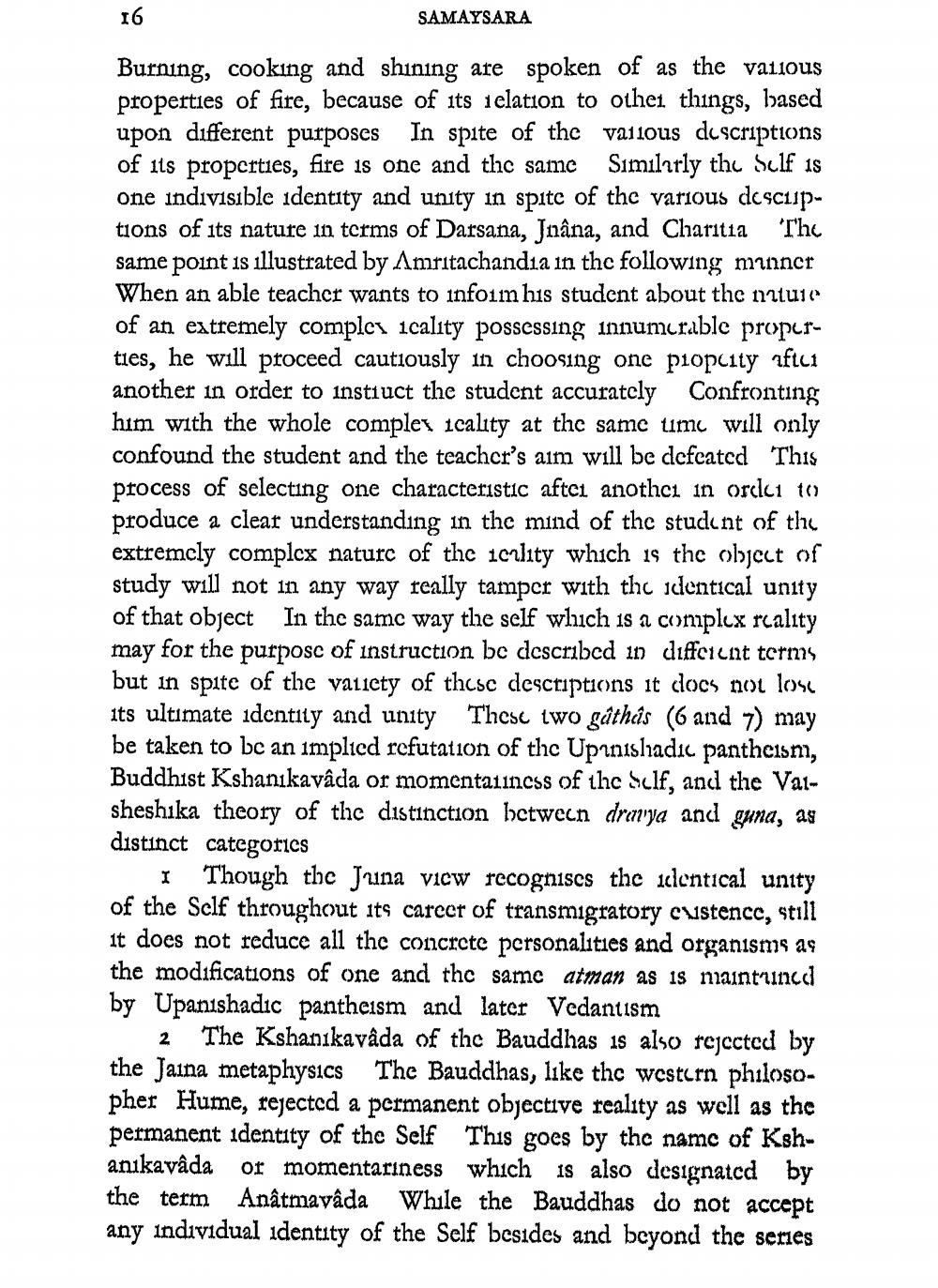________________
16
SAMAYSARA
Burning, cooking and shining are spoken of as the various properties of fire, because of its 1elation to other things, based upon different purposes In spite of the vallous descriptions of its properties, fire is one and the same Similarly thu Sulf is one indivisible identity and unity in spite of the various descuiptions of its nature in terms of Darsana, Jnâna, and Charitia 'The same point is illustrated by Amritachandia in the following muncr When an able teacher wants to infoim his student about the nature of an extremely complcı icality possessing innumcrable properties, he will proceed cautiously in choosing one piopcity aftci another in order to instiuct the student accurately Confronting him with the whole complex icality at the same time will only confound the student and the teacher's aim will be defeated This process of selecting one characteristic after anothci in ordli 10 produce a clear understanding in the mind of the student of the extremely complex naturc of the 1cility which is the object of study will not in any way really tamper with the identical unity of that object In the same way the self which is a complex reality may for the purpose of instruction be described in different terms but in spite of the variety of thcsc descriptions it does not lost its ultimate identity and unity These two gatheis (6 and 7) may be taken to be an implied refutation of the Uprnisladic pantheism, Buddhist Kshanikavâda or momentaiiness of the Sulf, and the Valsheshika theory of the distinction between drurya and guna, as distinct categories
I Though the Juna vicw recognises the identical unity of the Self throughout its carccr of transmigratory custencc, still it does not reduce all the concrcte personalities and organisms as the modifications of one and thc samc atman as is maintained by Upanishadic pantheism and later Vedantism
2 The Kshanikavâda of the Bauddhas is also rejected by the Jaina metaphysics The Bauddhas, like the western philosopher Hume, rejected a permanent objective reality as well as the permanent identity of the Self This goes by the name of Kshanikavâda or momentariness which is also designated by the term Anâtmavâda While the Bauddhas do not accept any individual identity of the Self besides and beyond the series




